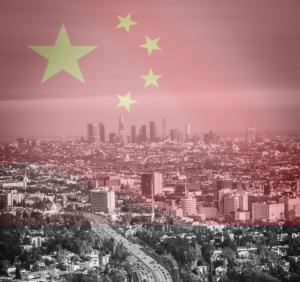
In a revealing interview on California Insider, human rights activist Dr. Wen Chen brought to light a disturbing case of alleged Chinese Communist Party (CCP) espionage in Los Angeles, involving the recent arrest of individuals attempting to manipulate U.S. elections.
Chen, a self-described, “former brainwashed” Chinese student who arrived in the U.S. in 1995, shared her personal journey of awakening from CCP propaganda and detailed the intricate web of CCP influence operations within American politics and culture.
Chen’s interview focused on the arrest of a Chinese national, identified as a campaign manager for an Arcadia City Council candidate, who was reportedly acting as an agent for the CCP. This individual is allegedly part of a larger group of seven or eight CCP agents operating in the San Gabriel area. Two other members of this group were previously arrested for attempting to bribe an undercover FBI agent, posing as an IRS official, to target the Shen Yun performing arts group.
According to Chen, the primary objective of these agents, as detailed in Department of Justice (DOJ) documents, was to manipulate local elections in the Los Angeles area. They aimed to get candidates favorable to the CCP elected, thereby furthering the party’s political agenda in the United States. The agents reportedly received funding from the People’s Republic of China (PRC) to carry out these activities, which included socializing with current and former elected officials to influence policies towards China and Taiwan.
Chen emphasized in her interview that the CCP’s broader strategy extends beyond political interference. The agents were also involved in cultural manipulation, using performing arts as a tool to spread pro-CCP messages. They attempted to establish a pro-China performing group to participate in major U.S. parades, aiming to present a positive image of the CCP and equate Chinese culture with communism. This effort is seen as a direct counter to Shen Yun, a New York-based performing arts group that showcases traditional Chinese culture before the influence of communism.
Further into the interview, Chen pointed out that the CCP’s influence is not limited to these covert operations. The Chinese government has been engaging with mainstream media in the U.S., paying for advertisements that promote a favorable view of China. Additionally, Hollywood’s interest in the lucrative Chinese film market has led to self-censorship, with movies often portraying the CCP in a positive light.
The Chen ends her interview urging viewers to share the information and raise awareness about the CCP’s infiltration in the U.S. She believes that widespread awareness is crucial to mitigating the risks posed by these espionage activities and safeguarding American democracy.
